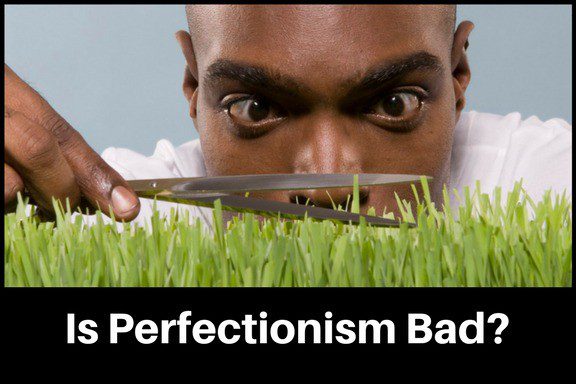Modern Causes Of Perfectionism Will Be A Major Problem In Your Life

Perfectionism has become increasingly prevalent, affecting individuals across various aspects of their lives. The pursuit of perfection can lead to immense pressure, stress, and adverse psychological effects.
This post explores the modern causes of perfectionism and explains how it can become a significant problem.
By understanding these causes, you can take steps to manage and overcome perfectionistic tendencies for a healthier and more balanced approach to life.
1. Understanding Perfectionism
Perfectionism is a personality trait characterized by setting excessively high standards for oneself and others and striving for flawlessness in all areas of life.
While aiming for excellence can be positive, perfectionism takes it to an extreme level, often resulting in self-criticism, self-doubt, and constant fear of failure.
2. The Influence of Social Media
Social media platforms have become a breeding ground for perfectionism in the digital age. People often present a curated version of their lives, showcasing only the highlights and achievements.
Constant exposure to these seemingly perfect lives can make individuals compare themselves and feel inadequate, fueling their desire for perfection.
3. High Expectations and Comparisons
Society’s emphasis on achievement and success has heightened expectations, making accepting anything less than perfection challenging. Comparing oneself to others who seemingly have it all together only reinforces the belief that perfection is the standard to strive for, increasing individual pressure.
4. Fear of Failure and Judgment
Perfectionists often fear failure and judgment from others. The prospect of making mistakes or falling short of expectations can be paralyzing, leading to procrastination or avoidance of tasks. This fear can hinder personal growth and prevent individuals from taking necessary risks.
5. Cultural and Societal Factors
Certain cultures and societies place a significant emphasis on perfectionism. Pursuing success, academic achievements, and societal validation can be ingrained from an early age, creating an environment that promotes perfectionistic tendencies. Cultural norms and expectations can further amplify the problem.
6. The Role of Upbringing and Parental Pressure
Childhood experiences and parental expectations can contribute to the development of perfectionism. Parents who set unrealistic standards or overly focus on achievements may inadvertently foster perfectionistic behavior in their children. These individuals grow up believing that their worth is tied to their accomplishments.
7. Work and Academic Environments
Competitive work and academic environments can intensify perfectionistic tendencies. Deadlines, performance evaluations, and the pursuit of recognition can create a constant need for perfection. The fear of making mistakes or being judged by colleagues or superiors can drive individuals to prioritize perfection over their well-being.
8. The Impact on Mental Health
Perfectionism can have detrimental effects on mental health. It is closely linked to anxiety, depression, obsessive-compulsive tendencies, and burnout. The relentless pursuit of perfection can lead to chronic stress, a diminished sense of self-worth, and a decreased ability to enjoy life.
9. Overcoming Perfectionism
Recognizing and addressing perfectionism is crucial for personal growth and well-being. Here are some strategies to help overcome perfectionistic tendencies:
- Set realistic goals and expectations.
- Embrace mistakes as learning opportunities.
- Practice self-compassion and self-acceptance.
- Challenge negative thoughts and perfectionistic beliefs.
- Prioritize self-care and relaxation.
- Seek support from friends, family, or professionals.
10. Seeking Professional Help
In severe cases, seeking professional help can be beneficial. Therapists, counselors, or psychologists specializing in cognitive-behavioral therapy (CBT) can assist in exploring underlying causes of perfectionism and developing healthier coping mechanisms.
Conclusion
Fueled by modern causes such as social media influence, high expectations, and fear of failure, perfectionism has become a significant problem in many lives. It negatively impacts mental health, relationships, and overall well-being. By understanding the root causes and implementing strategies to manage perfectionism, individuals can cultivate a more balanced and fulfilling life.
FAQs
Q1. Is perfectionism always a bad thing?
Perfectionism can have both positive and negative aspects. While striving for excellence and having high standards can be beneficial, extreme perfectionism can lead to excessive stress, anxiety, and self-criticism.
Q2. Can perfectionism be unlearned?
Yes, perfectionism can be unlearned. It requires self-awareness, a willingness to change, and the implementation of strategies like setting realistic goals, practicing self-compassion, and challenging perfectionistic beliefs.
Q3. Is perfectionism more common among certain age groups?
Perfectionism can affect individuals of all age groups. However, due to societal pressures and expectations, it may be more prevalent among young adults and high-achieving individuals.
Q4. How can social media contribute to perfectionism?
Social media platforms often portray an idealized version of people’s lives, creating constant comparisons. This can lead individuals to believe perfection is the norm, intensifying their perfectionistic tendencies.
Q5. When should I seek professional help for perfectionism?
If perfectionism significantly interferes with your daily life, relationships, or mental well-being, it may be beneficial to seek professional help. A therapist or counselor can provide guidance and support in overcoming perfectionistic tendencies.







Socially prescribed perfectionism is definitely something that I have experienced. The rise of social media is definitely the culprit for me. I’m somewhat of a late bloomer compared to most of the people that I went to college with. For a long time I beat myself up about how well they were doing compared to how I was doing. I’m finally starting to get over that, and happy to say that focusing less on what others are doing and more on improving myself has led me to a very high point in my life and career.
Thanks for your comment Ryan. Yeah, I have been there. Everyone’s life looks GREAT on social media. LOL. That pressure to compete and compare can cause a great deal of anxiety. Like you, I had to learn not to compare my documentary to their highlight reel 😉
Nice Tony! It looks like we have a very similar life, I am bookmarking your blog right now! Looking forward to more content like this!
Thanks for stopping by. I love your site and it’s Minimalist design. You have a winner 😉
Thank you for your comment Antonio. Perfectionism is not what it is hyped up to be 😉
Thanks for stopping by. I love your site and it’s Minimal Design. You have a winner there 😉
Love what you’re saying in this, I often find myself placing happiness somewhere in the future. Being told constantly that you should be living a certain kind of life can make you burn out sometimes, definitely important to focus on the little things you have in your life and be grateful for them instead.
Thanks for stopping by. I love your site and it’s Minimal Design. You have a winner there 😉
Nice Tony! It looks like we have a very similar life, I am bookmarking your blog right now! Looking forward to more content like this!
Thanks for stopping by. I love your site and it’s Minimalist design. You have a winner 😉
Socially prescribed perfectionism is definitely something that I have experienced. The rise of social media is definitely the culprit for me. I’m somewhat of a late bloomer compared to most of the people that I went to college with. For a long time I beat myself up about how well they were doing compared to how I was doing. I’m finally starting to get over that, and happy to say that focusing less on what others are doing and more on improving myself has led me to a very high point in my life and career.
Thanks for your comment Ryan. Yeah, I have been there. Everyone’s life looks GREAT on social media. LOL. That pressure to compete and compare can cause a great deal of anxiety. Like you, I had to learn not to compare my documentary to their highlight reel 😉
Thank you for your comment Antonio. Perfectionism is not what it is hyped up to be 😉
Love what you’re saying in this, I often find myself placing happiness somewhere in the future. Being told constantly that you should be living a certain kind of life can make you burn out sometimes, definitely important to focus on the little things you have in your life and be grateful for them instead.